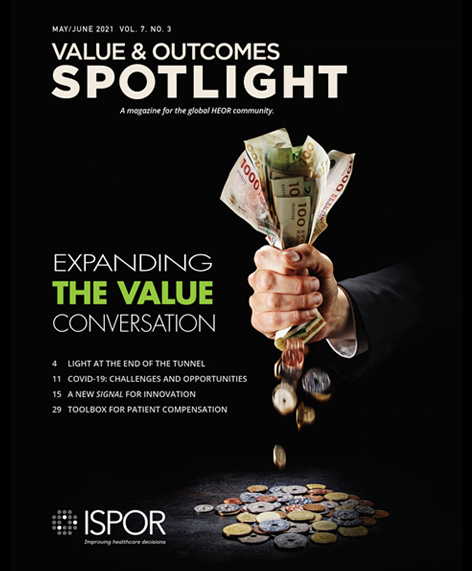The Importance of Stakeholder Perspectives
Stakeholder identification is critical when embarking on a comprehensive health economic evaluation. However, that step itself is insufficient without fully engaging with these stakeholders and understanding both their overall perspectives and particular priorities within the healthcare system, including their specific interests related to treatments or programs under evaluation. What are their financial stakes and how are they held accountable for optimizing patient outcomes or, as is the case with patient stakeholders, how can they hold other organizations accountable? What is their role in shaping or influencing decisions regarding who should get the treatment and at what cost?
This issue focuses on stakeholders and begins with a primer titled, “Expanding the Value Conversation,” which summarizes their role in value-based healthcare decision making. This article, authored by John Watkins, PharmD, MPH, BCPS, is the first in a series that focuses on stakeholders and their perspectives. As perspective is key to the success of our discipline, future articles published in Value and Outcomes Spotlight will feature articles on payer, patient, and provider stakeholders through commentary on contemporary topics or invited or ad hoc stakeholder-relevant submissions.
"Stakeholder identification is critical when embarking on a comprehensive health economic evaluation. However, that step itself is insufficient without fully engaging with these stakeholders and understanding both their overall perspectives and particular priorities within the healthcare system..."
This issue also includes an article authored by colleagues from the National Health Council and focuses on tools for compensating patients for their engagement in health-related research. As arguably the most important healthcare stakeholder, patients need to be recognized and appropriately compensated for their integral role in and contributions to outcomes research, whether those contributions include providing relevant perspectives or data directly to our research rather than obtaining information through other proxy sources.
Finally, the issue contains an article by Desai and colleagues on the need for healthcare stakeholders to identify “fit for purpose” real-world data for HEOR evaluations. In a sea of data derived from electronic health records, administrative/billing records, disease registries, genetic profiles, digital apps, and other sources, can we identify a core set of measures and establish criteria for assessing data quality? The Use-Case specific Relevance and Quality Assessment (UReQA) framework introduced by the authors provides one model for making that assessment.
As always, we welcome the input of our readers, especially as it relates to stakeholder perspectives in value assessment. Please feel free to contact us by emailing Zeba Khan or Laura Pizzi.

Zeba M. Khan, RPh, PhD and
Laura T. Pizzi, PharmD, MPH
Editors-in-Chief, Value & Outcomes Spotlight

